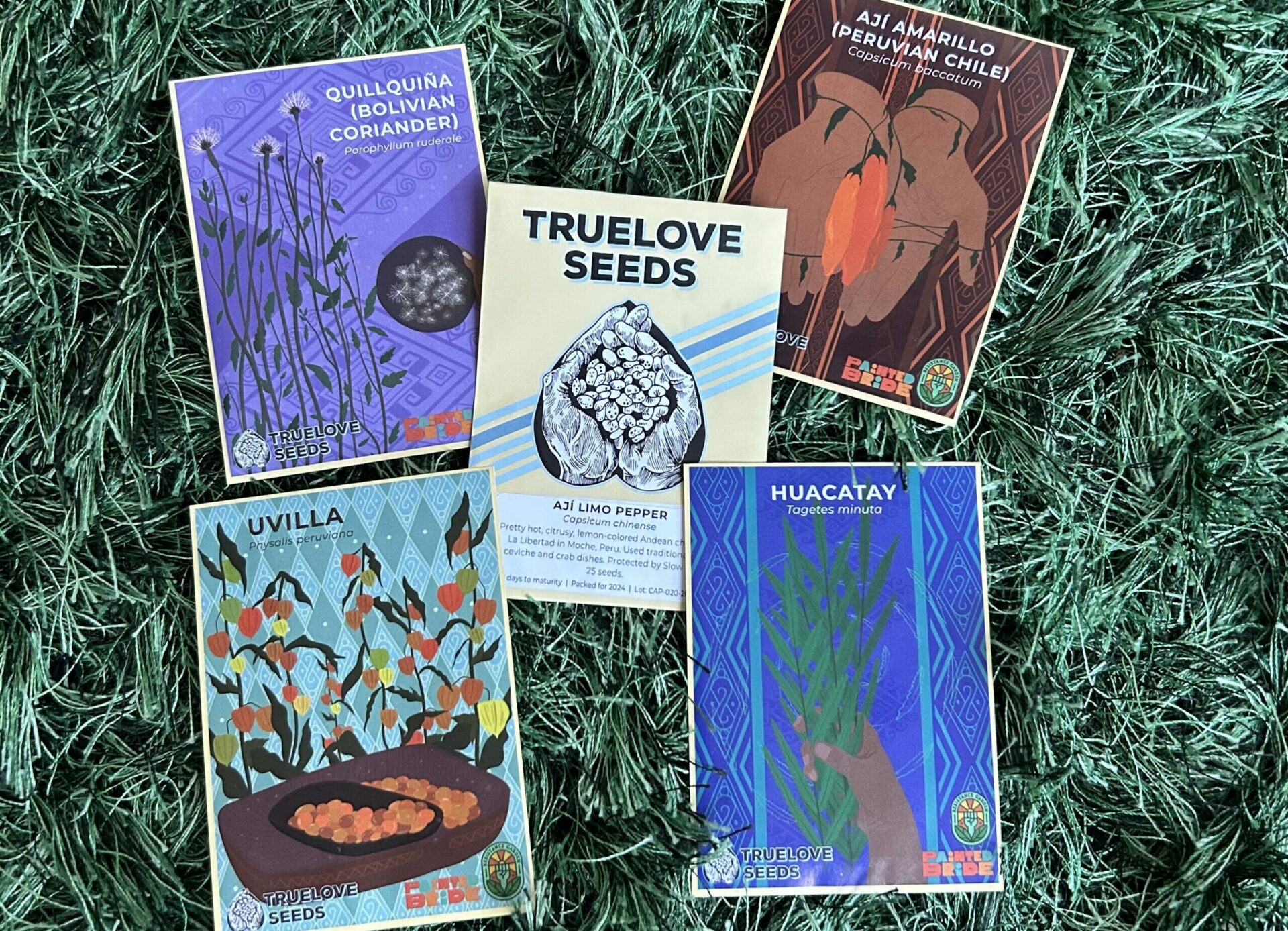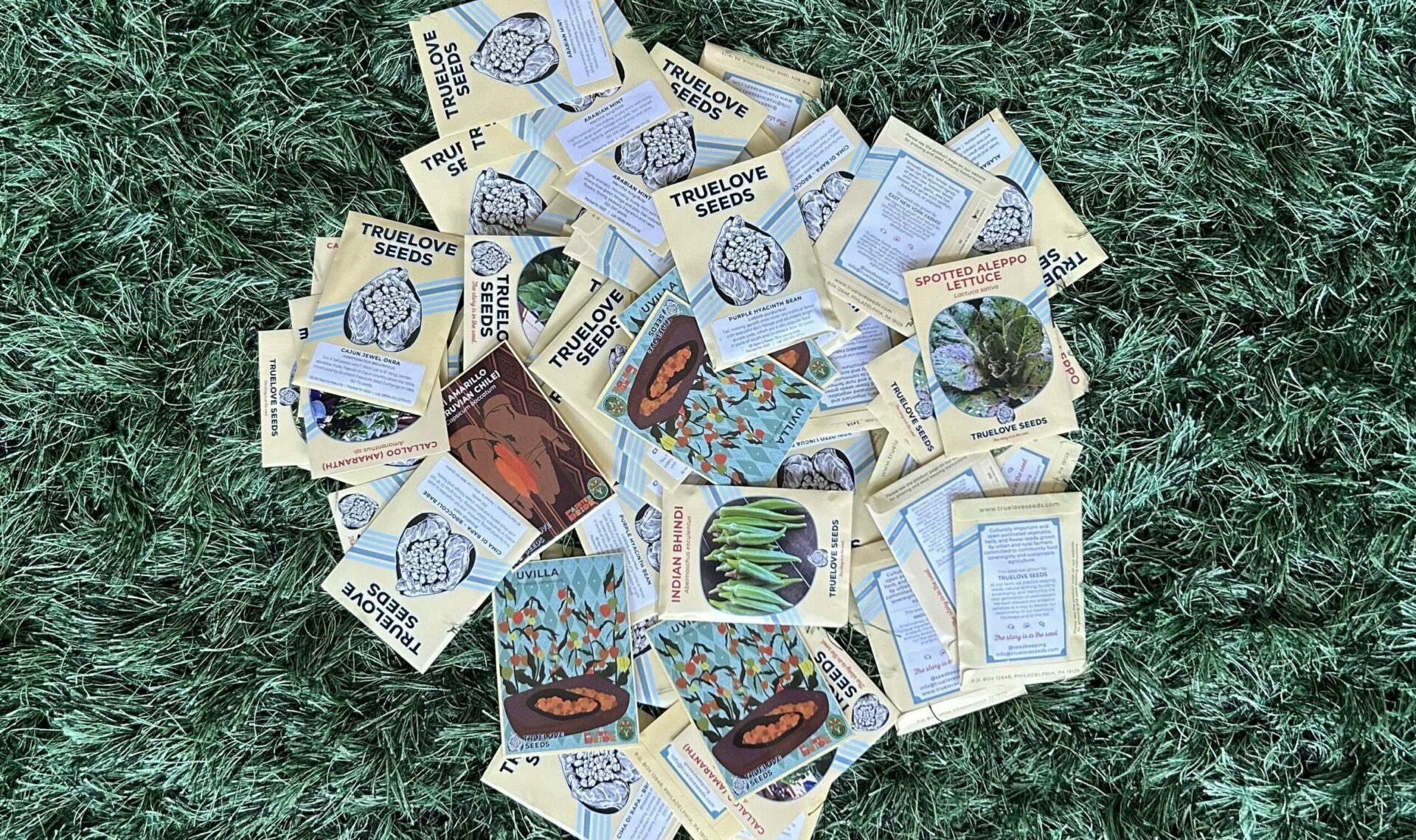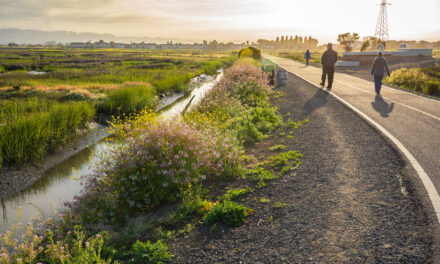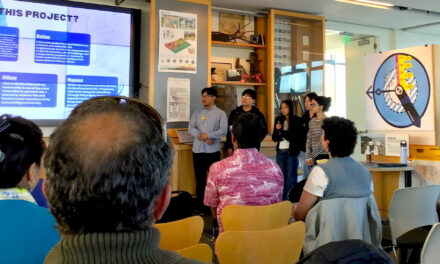Seeding Urban Gardens with Love
Photo: Sowing Seeds
Packets of free seeds are arriving at gardens across the country, including two in the Bay Area, thanks to a new seed distribution project. Sydney Searchwell-Simpson and Eni Asebiomo created the Sowing Seeds project last year after winning a $20,000 grant from Mercy For Animals’ The People’s Fund, which supports BIPOC-led sustainable food projects. In March, Sowing Seeds invited hundreds of gardens to explain their community impact and experiences with seed sharing. Selected applicants receive seed bundles that promote permaculture, a sustainable and climate-resilient style of land management based on natural ecosystems.
The project sprouted in Searchwell-Simpson’s mind three years ago during the pandemic in response to environmental issues she noticed in her hometown of Toronto. “Green spaces are disappearing and grocery prices are rising and people seem disconnected from life and the natural world,” she says. A public garden would be a great way to reconnect people with nature and provide affordable produce, she figured.
Searchwell-Simpson initially hoped to create a community farm in Brooklyn. Contacts introduced her to Asebiomo and Truelove Seeds, a shop specializing in heirloom seeds, which are seeds that have been exclusively open-pollinated for generations. Their genetic diversity supports biodiversity, they generally require little fertilizer or pesticides, and bear tasty produce.
Sydney Searchwell-Simpson and Eni Asebiomo. Photo: Sowing Seeds
Working together, the two envisioned a farm that would not only reconnect city folk with green space, but also model sustainability. The duo anticipated that the self-sufficiency of heirloom seeds and their land management would allow for the garden to grow with minimal resources. “Traditional agriculture grows things in a way where there is high water usage or a high use of pesticides, whereas permaculture models the way that food might naturally grow,” Asebiomo says.
However, the team hit an unexpected roadblock. Crucially, Searchwell-Simpson did not anticipate the visa and permitting hurdles she’d face trying to start a garden in America as a Canadian. So, they decided to pivot. Instead of using seeds from Truelove Seeds to start their own farm, they figured they could distribute seeds to as many gardens and farms as possible.
The new plan got off to a rocky start. Initial outreach to gardens and farms in the Bay Area and New York City yielded no applications. So they asked for help from Truelove Seeds and Searchwell-Simpson’s mentor, Robin Greenfield, a climate activist known for not owning shoes and living off the grid. Truelove Seeds and Greenfield connected them with thousands of gardens. Sowing Seeds has now received over 70 applications for seed packets and has approved over 20. Searchwell-Simpson says they have capacity to distribute seeds to around 70 gardens and are looking for applicants that generally allow anyone to access their gardens.
Photo: Sowing Seeds
Applicants can choose from two seed bundles that embody the ideals the founders desired for their own farm. The Ancestral Collection offers heirloom seeds from specific geographic locations, which can grow in harmony with a given area’s natural ecosystem. A second option, dubbed the Collective Liberation Food Forest, features seeds from around the world that can grow with little to no intervention, in keeping with the principles of permaculture. The pivot has had some upsides: Searchwell-Simpson is grateful that Sowing Seeds is now “able to reach out to communities that we simply couldn’t with one singular location.”
While Searchwell-Simpson has provided creative direction throughout the project, Asebiomo has managed the project’s operations and built the Sowing Seeds website. Beyond basic application details, he wanted the site to “provide a platform that speaks to the specific principles of permaculture that Sowing Seeds thinks is important,” he says.
Asebiomo also brought this mission to the task of shipping seed packets to recipients. The packing material, along with a thank you card and mission statement, is compostable and laced with wildflower seeds. Searchwell-Simpson hopes recipients spread permaculture within their communities. Bay Area recipients so far include Santa Rosa Junior College’s culinary department and a community garden of an apartment complex in San Leandro.
The two seed activists are already considering expanding the project to match recipient gardens for collaboration and mutual learning. And earlier this month, Mercy For Animals invited the duo to reapply for The People’s Fund. “We are keeping all of our options open,” Asebiomo says.
Other Recent Posts
Assistant Editor Job Announcement
Part time freelance job opening with Bay Area climate resilience magazine.
Training 18 New Community Leaders in a Resilience Hot Spot
A June 7 event minted 18 new community leaders now better-equipped to care for Suisun City and Fairfield through pollution, heat, smoke, and high water.
Mayor Pushes Suisun City To Do Better
Mayor Alma Hernandez has devoted herself to preparing her community for a warming world.
The Path to a Just Transition for Benicia’s Refinery Workers
As Valero prepares to shutter its Benicia oil refinery, 400 jobs hang in the balance. Can California ensure a just transition for fossil fuel workers?
Ecologist Finds Art in Restoring Levees
In Sacramento, an artist-ecologist brings California’s native species to life – through art, and through fish-friendly levee restoration.
New Metrics on Hybrid Gray-Green Levees
UC Santa Cruz research project investigates how horizontal “living levees” can cut flood risk.
Community Editor Job Announcement
Part time freelance job opening with Bay Area climate resilience magazine.
Being Bike-Friendly is Gateway to Climate Advocacy
Four Bay Area cyclists push for better city infrastructure.
Can Colgan Creek Do It All? Santa Rosa Reimagines Flood Control
A restoration project blends old-school flood control with modern green infrastructure. Is this how California can manage runoff from future megastorms?
San Francisco Youth Explore Flood Risk on Home Turf
At the Shoreline Leadership Academy, high school students learn about sea level rise through hands-on tours and community projects.












